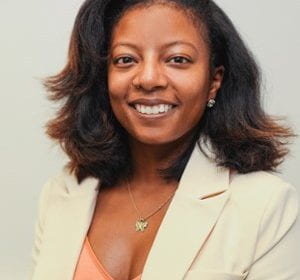QOL Aiding Foster Youth in Developing Skills to Secure Career Positions


Galaxina Wright, PhD, NCC is an Assistant Professor for the College of Psychology in the Department of Counseling.
In addition to teaching counseling courses, Dr. Wright also supervises counseling practicum students.
Tell me briefly about your recent grant-funded project.
Our study provides Project P.A.T.H. (Paving Access to Hope), a job search psychoeducational group workshop, to foster youth who are transitioning out of the foster care system. We’ve partnered with a nonprofit organization, the FLITE Center, and have implemented three workshops that allow participants engage in various elements of job search, including: (a) career planning, (b) job networking, (c) building resumes and cover letters, (d) developing an elevator pitch and interview preparation, and (e) job success. In addition, we also integrate psychoeducation for anxiety and stress coping techniques as they relate to each of the areas. For example, we discuss and practice grounding and box breathing techniques for participants to use when they become overwhelmed about finding a job in a timely manner, or to combat anxiety that may arise in high stress positions when they obtain a job. We also engage in experiential learning methods and reflection related to each of the workshop elements. For instance, when reviewing interview preparation, we had participants practice responding to mock interview questions and provide on the spot feedback. While providing these workshops, we collected both qualitative and quantitative data to evaluate change, with the hopes of seeing a decrease in participants’ levels of anxiety. We also hope to see an increase in their level of confidence to engage in job search tasks and their levels of hope to find future employment. We are currently in data analysis phase of this study and are eager to disseminate the results in 2024.
Who is working with you on this project?
Co-investigators of this project include Drs. Elda Veloso, Jennifer Reeves, and Carly Paro-Tompkins. We also have recruited Samantha Both, a psychology doctoral student, to serve as our research assistant and Sherryann Major, a psychology doctoral student, to aid with facilitation of the workshops.
What opportunities and/or benefits does this grant bring to the NSU community?
This project has had an impact on both the FLITE organization and the local Fort Lauderdale and Broward community. In Florida, there are approximately 280,000 unemployed individuals, and over 66,000 of those individuals reside in the Miami-Fort Lauderdale-Pompano Beach region. We believe results of this project will be used to inform unemployed individuals, employment services, and policy systems that provide employment and career services involving young adults aging out of foster care. This project has also had direct impact on the FLITE organization by providing additional employment services to young adults and fulfilling their overall mission of offering comprehensive access to services for young adults aging out of foster care. On a more individual level, this program has had an impact on the lives of the young adults who have participated, as they have provided positive feedback and insight to the instructors following each workshop.
How does this project connect with your other work at NSU?
Outside of this project, I also aid with consultation for a team of doctoral students who are completing their internship within Title I schools of Broward County Public School system. My engagement in Project PATH has allowed me to continuously expand my competency of cultural humility and the impact that trauma has on development of individuals. Therefore, this opportunity has allowed me to provide insight to doctoral students that are working with diverse populations who have also experienced trauma.
How has NSU helped you pursue and/or achieve personal and professional goals you have set for yourself? NSU resources used?
As a new Assistant Professor and novice educator in the counseling field, my professional goal was to expand my dissertation research, which served as a pilot for Project P.A.T.H. Our research team was awarded the 2023-2024 Quality of Life (QOL) Grant, which has aided tremendously with this goal by providing services for participants including transportation to the research study site, breakfast and lunch throughout the workshop, and gift card incentives. This is particularly important given the population that we are working with as many of them are either homeless or receive government assistance but remain on a fixed income. The QOL grant has also aided with resources for the team including platforms for data collection and analysis and the ability to disseminate our findings. We also obtained the College of Psychology Research Award, a $1k award dedicated to aid with community research initiatives. These funds serve as an additional aid to support this study. On a personal level, I’ve always had a passion to help underserved communities and NSU has been a great support with advocating for community involvement. My co-investigators have been a great support and resource as we have developed the study and served as mentors to my professional development. Further, our Department of Counseling Chair, Dr. Melanie Iarussi, our deans, Drs. Karen Grosby and Kimberly Durham, and associate dean, Dr. Mindy Ma, have been extremely supportive of our team’s efforts.
What advice do you have for other grant seekers at NSU?
For entry level grant seekers such as myself, be confident in your ideas and be open to feedback. Often people are nervous about sharing their ideas out of fear of rejection. However, I’ve found I’m the most successful with obtaining funding when I’ve had more senior researchers review my work and provide constructive feedback, such as the co-investigators I work with. If possible, I also encourage finding a mentor that has conducted research that is similar to yours, both inside and outside of the university. I believe this helps to diversify your network and to obtain varying perspectives. Finally, keep the population that you’re interested in working with at the forefront. It can be easy to get lost in the logistics of seeking or operating a grant but remembering you’re “why” will help to guide your focus and maintain your motivation throughout.
What is the next grant proposal or project on your agenda?
Following data analysis, our team is working on refining Project PATH and providing an extended workshop to those individuals have participated in our current study. The goal of this extension is to provide more one-on-one, customized interventions to participants and to develop specialized career plans and curriculum to them. We hope to continue working with the FLITE Center to assess their needs and provide intentional resources to support to their youth.